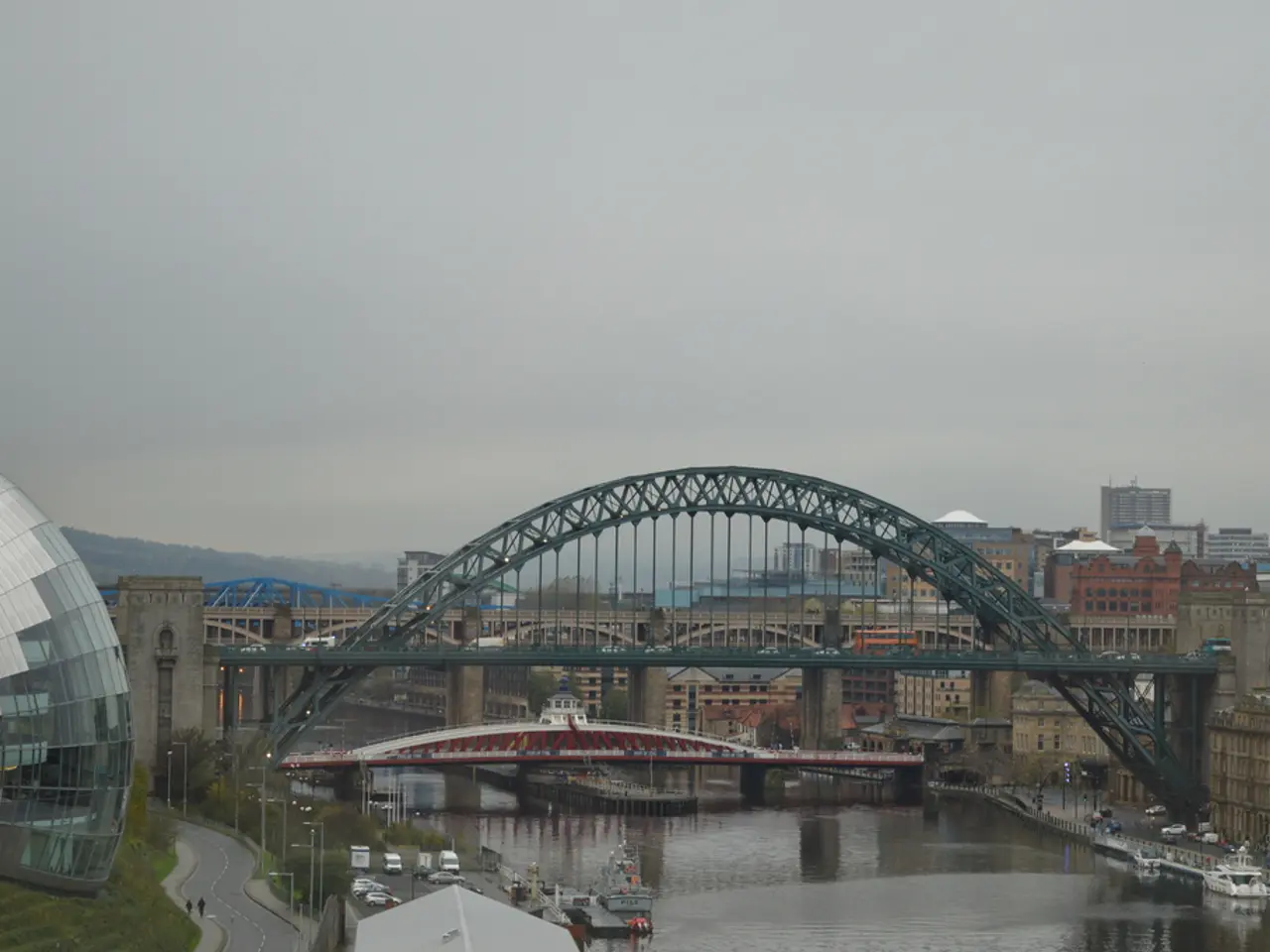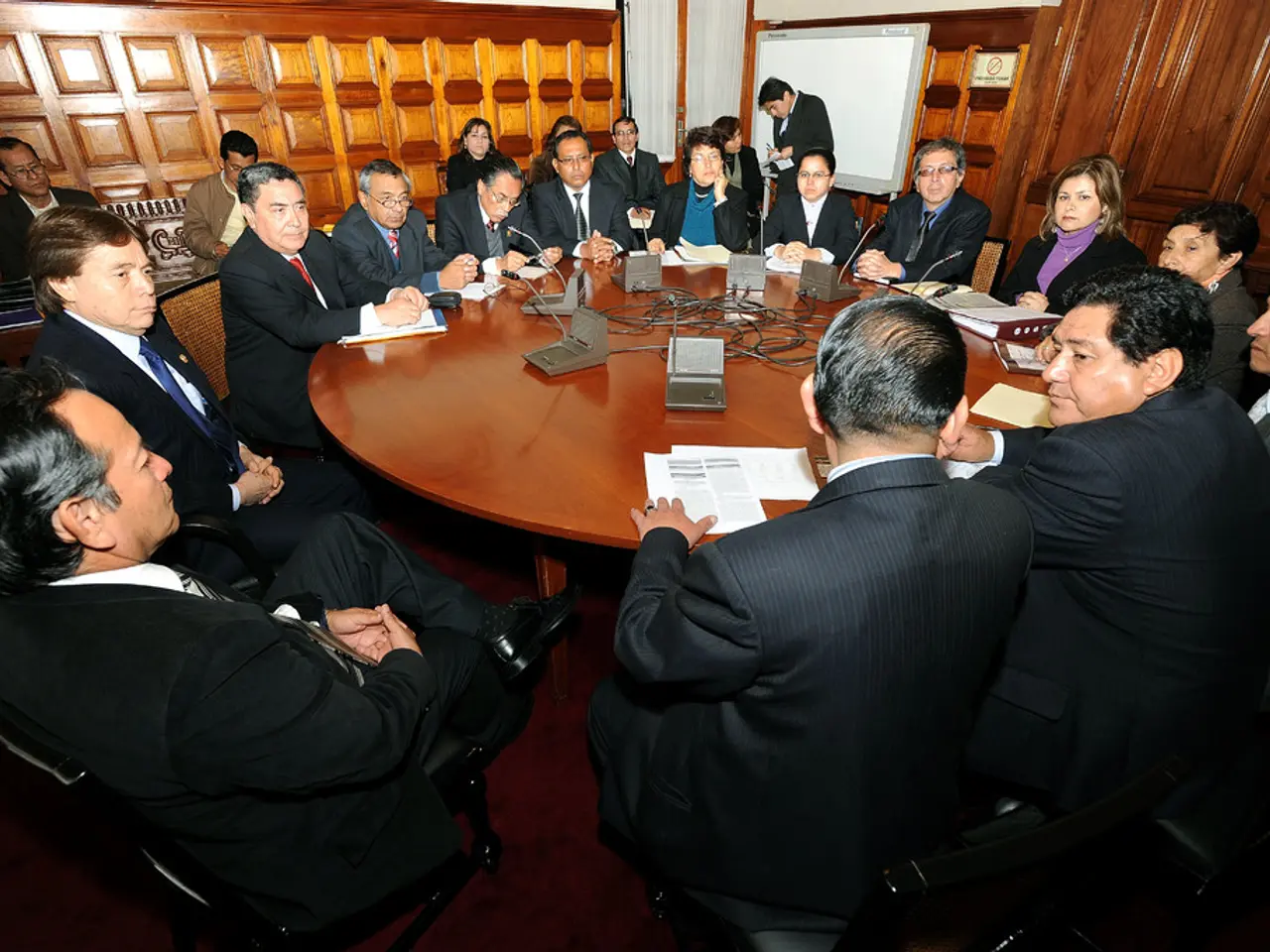Company suspended in Abu Dhabi due to excess emissions violations during air quality enforcement
The Environment Agency – Abu Dhabi (EAD) has launched a multi-faceted approach to improve air quality, reduce pollution, and ensure a cleaner, safer, and more sustainable future for the emirate.
In May 2024, the agency set out a green action plan aimed at driving up air quality, reducing noise pollution, and holding industries accountable for their impact on the environment. This initiative is part of a broader emirate-wide adaptation and sustainability vision, as outlined in the Abu Dhabi Environmental Centennial 2071 Plan.
EAD's strategy includes regulatory actions that target industrial emissions and noise pollution control. Industries are required to comply with environmental standards and accountability mechanisms to reduce their environmental footprint. This proactive approach is designed to safeguard the emirate’s natural resources, ecosystems, and public health from environmental pollution and climate impacts.
One of the key areas of focus is Mussafah, one of the capital's busiest industrial zones. The agency has already taken action against an unnamed facility in Mussafah for exceeding emissions limits, suspending its operations until compliance is achieved.
To further enhance its efforts, EAD is developing a cutting-edge air-quality system. This system will help reduce pollution exposure, provide cleaner air, and pinpoint pollution hotspots. Detailed air-quality maps will be released annually as part of this system, offering valuable insights into the emirate's air quality.
Moreover, the agency is preparing and reviewing environmental studies to set standards for development projects and infrastructure to manage emission levels. This proactive approach will ensure that new projects align with EAD's goals for a cleaner and healthier environment.
The EAD's strategy is also aligned with the Abu Dhabi Climate Change Adaptation Plan for the Environment Sector (2025–2050), which outlines 142 strategies to be implemented by 2050, including 86 to be introduced in the next five years. This plan integrates science-based, forward-looking measures to mitigate environmental risks and climate impacts, ensuring the emirate's resilience in the face of climate change.
EAD has also called on all industrial facilities to comply with environmental standards to protect public health and preserve the natural environment. The agency will continue its monitoring and inspection operations to maintain a cleaner, safer, and more sustainable Abu Dhabi.
In line with these efforts, the agency pledged to commit to efforts towards cleaner air, as stated in a resolution issued by Sheikh Hamdan bin Zayed. This resolution underscores Abu Dhabi's commitment to addressing climate change and protecting its natural resources for future generations.
In conclusion, the EAD's air quality strategy relies on enforced environmental regulations, comprehensive climate adaptation planning, and collaborative governance to ensure sustainable development and resilience in Abu Dhabi’s environment.
- The Environment Agency – Abu Dhabi (EAD) has launched a multi-faceted approach to improve air quality, reduce pollution, and ensure a cleaner, safer, and more sustainable future for the emirate, which includes the development of a cutting-edge air-quality system.
- This system, once implemented, will help reduce pollution exposure, provide cleaner air, and pinpoint pollution hotspots, with detailed air-quality maps being released annually.
- EAD is preparing and reviewing environmental studies to set standards for development projects and infrastructure to manage emission levels, ensuring that new projects align with EAD's goals for a cleaner and healthier environment.
- EAD's strategy is also aligned with the Abu Dhabi Climate Change Adaptation Plan for the Environment Sector (2025–2050), a plan that outlines 142 strategies to be implemented by 2050, including 86 to be introduced in the next five years.
- The UAE news has been featuring stories about EAD's proactive approach, holding industries accountable for their impact on the environment, such as the suspension of an unnamed facility in Mussafah for exceeding emissions limits.
- In line with these efforts, EAD has pledged to commit to efforts towards cleaner air, as stated in a resolution issued by Sheikh Hamdan bin Zayed, underscoring Abu Dhabi's commitment to addressing climate change and protecting its natural resources for future generations.




